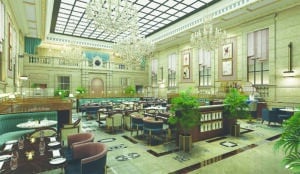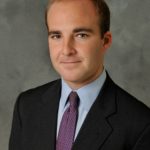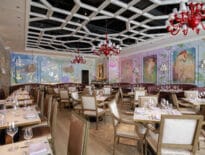
The Langham, Boston hotel reopened in May 2021 following a $200 million renovation project. The Boston and Cambridge hotel market has steadily recovered since July 2021, according to Pinnacle Advisory Group research. Photo courtesy of Shawmut Design and Construction
The Boston and Cambridge lodging market has been slower to recover than most markets across the country. However, after more than two years since the pandemic began, the market is beginning to pick up speed.
With the corporate transient and group demand segments largely on the sidelines through much of 2021, the market was relying on its leisure demand which surpassed its pre-pandemic levels. Although the corporate and group segments, along with international visitation, continues to lag, there has been significant gains in March and April 2022. The increases to demand volume, combined with the market’s continued ability to drive average daily rate (ADR), bode well for the recovery of the Boston and Cambridge lodging market.
Market occupancy in Boston and Cambridge was 45 percent in 2021, only 55 percent of its level in 2019. When considering the declines in demand and its volatility, operators have been successful in maintaining ADR which has recovered at a much faster pace than occupancy. When indexed in 2019, ADR recovery continued through much of the second half of 2021 and its rate in December was just 1 percent less than its level in December 2019. By year end, market ADR was $212, down 19 percent to its 2019 levels.
2021 Was Late Bloomer
In 2021, the Boston and Cambridge market’s revenue per available room (RevPAR) was 44 percent of its level in 2019. By comparison, the U.S. lodging market’s RevPAR index was 81 percent and the country’s top 25 markets reached 64 percent, according to STR. Through year-end 2021, the Boston metro area market ranked as the fourth slowest market in the recovery behind San Francisco, New York City and Washington D.C.
The recovery did not begin to take shape in Greater Boston until late spring and as a result, year-end results are somewhat misleading when gauging the market’s recovery and potential trends moving into 2022. RevPAR began to recover in June 2021 as the state reopened, ending of the state of emergency, which correlated with the region’s seasonal patterns for leisure travel. Despite the delta and omicron variants which delayed the expected return to offices and an increase in corporate lodging demand, the market benefitted from leisure-oriented events in the fall which included the Laver Cup, the rescheduled Boston Marathon and Red Sox playoff games, among other events.
Additionally, the city’s two convention centers hosted multiple events and citywide meetings in the second half of the year. Although these events did not make up for the lack of corporate and group demand, the third and fourth quarter performance helped occupancy inch closer to pre-pandemic levels. When considering the declines in demand and its volatility, operators have been successful in maintaining ADR. The market’s ADR index remained above 80 percent over the course of the second half of the year and reached 99 percent in December, meaning the market rate was just 1 percent less than its level in December 2019. Despite these gains in the third and fourth quarters of 2021, hotel owner and operators generated less than half of the room revenue they had just two years prior.
Leisure Travel Gains Continue in Q1
The market’s performance in the first quarter of 2022 is promising while also somewhat distorted.
The surge in case counts associated with the omicron variant had a negative impact on the first six weeks of the year. Despite this speed bump in the recovery, leisure travel which was fully recovered in 2021 strengthened further in the first quarter. Both the business transient and group demand recovery rapidly improved in March and into April as companies adjusted travel policies, employees return to offices and meeting and event attendance showed less attrition.
The market’s ability to maintain rate continued through the first quarter of 2022 with its ADR of $192 equal to its pre-pandemic levels. As a result of its improving demand volume and its strong ADR, the market’s RevPAR index when compared to its 2019 levels, improved from 54 percent in January to 77 percent in March.

Sebastian J. Colella
Barring a major reversal in the course of the pandemic, the trajectory of the Boston and Cambridge lodging market’s recovery since July 2021 is encouraging. Pinnacle Advisory Group has projected continued gains in demand through year-end as corporate and group return to traveling. While ADR is expected to remain above pre-pandemic levels through much of the year, current growth rates will not be sustainable. Occupancy is projected to reach 68 percent in 2022, 14 points below its pre-pandemic level. ADR is projected to increase to $259, a 22 percent gain from last year and only 1 percent down from its pre-pandemic levels.
As a result, the Boston and Cambridge lodging market’s RevPAR is projected to be $175 in 2022, a 20 percent decline from its 2019 levels.
Despite the improved market dynamics, the industry faces challenges as it relates to a tight labor market driving increased wages, inflationary pressures and supply chain issues, all of which will put downward pressure on operating margins. Owners and operators in the Boston lodging market welcome the return of corporate and group demand in 2022 which will help to offset the challenges brought on by the current state of the economy.
Sebastian J. Colella is vice president at Pinnacle Advisory Group.




 |
| 
